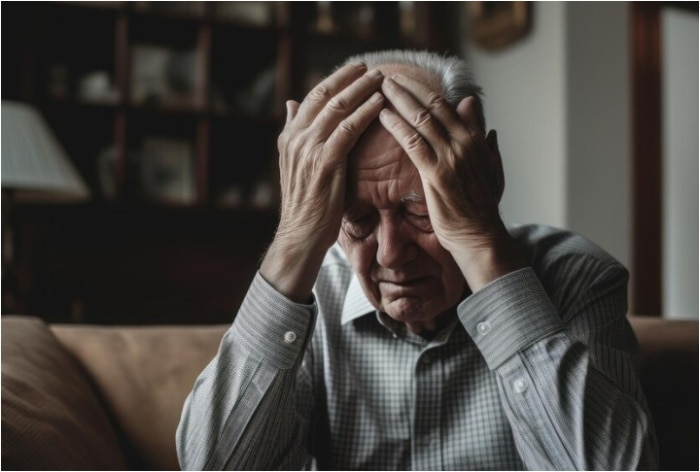Post-stroke depression (PSD) is a mood disorder that occurs after a person experiences a stroke. It’s characterised by feelings of sadness, hopelessness and loss of interest in activities that were once enjoyed.
DOCTOR VERIFIED
Post-stroke depression (PSD) is a common and often underdiagnosed complication that affects a significant number of stroke survivors. It refers to the onset of depressive symptoms following a stroke, which can significantly impact the individual’s emotional well-being, recovery, and quality of life. PSD can occur in the days, weeks, or even months after a stroke and may persist for an extended period if left untreated.
The exact cause of post-stroke depression is not fully understood, but it is believed to result from a combination of biological, psychological, and social factors. The physical and neurological changes caused by a stroke, such as damage to brain regions involved in mood regulation and neurotransmitter imbalances, can contribute to the development of depressive symptoms. Additionally, the emotional and psychological impact of experiencing a life-threatening event, coping with physical disabilities, and adjusting to functional limitations can also increase the risk of depression.
Recognizing and addressing post-stroke depression is essential for promoting the overall well-being and recovery of stroke survivors. Dr Santosh Bangar, senior Consultant- Psychiatrist, Gleneagles Hospitals Parel Mumbai spoke to India.com and shared some strategies for addressing post-stroke depression:
1. Screening and Diagnosis: Healthcare professionals should routinely screen stroke survivors for depressive symptoms during follow-up appointments and rehabilitation sessions. Screening tools such as the Patient Health Questionnaire-9 (PHQ-9) can help identify individuals at risk of post-stroke depression. A comprehensive evaluation by a healthcare provider, including a physical examination, medical history review, and assessment of depressive symptoms, is essential for accurate diagnosis and treatment.
2. Pharmacological Treatment: Antidepressant medications may be prescribed to manage depressive symptoms in stroke survivors with post-stroke depression. Selective serotonin reuptake inhibitors (SSRIs) are commonly recommended due to their efficacy and favorable side effect profile. However, medication management should be individualized based on the patient’s medical history, comorbidities, and potential drug interactions.
3. Psychotherapy: Counselling and psychotherapy interventions, such as cognitive-behavioural therapy (CBT) and interpersonal therapy (IPT), can be beneficial for addressing post-stroke depression. These therapeutic approaches aim to identify and challenge negative thought patterns, improve coping skills, enhance social support networks, and promote adaptive behaviours. Psychotherapy can be delivered individually or in group settings, depending on the individual needs.
4. Social Support: Building a strong support network is crucial for stroke survivors dealing with post-stroke depression. Encouraging participation in support groups, connecting with peers who have experienced similar challenges, and fostering meaningful social connections with family, friends, and caregivers can provide emotional validation, practical assistance, and a sense of belonging. Social support can help alleviate feelings of isolation, loneliness, and hopelessness commonly experienced by individuals with post-stroke depression.
5. Lifestyle Modifications: Adopting healthy lifestyle habits can help improve mood and overall well-being in stroke survivors with post-stroke depression. Encouraging regular physical activity, maintaining a balanced diet, getting an adequate amount of sleep, and reducing alcohol and tobacco consumption can support mental and physical health. Engaging in enjoyable activities, hobbies, and leisure pursuits can also promote feelings of pleasure, satisfaction, and fulfilment.
6. Multidisciplinary Care: Collaborative care involving healthcare professionals from different disciplines, including neurology, psychiatry, rehabilitation is essential for addressing the complex needs of stroke survivors with post-stroke depression. A multidisciplinary approach ensures comprehensive assessment, coordinated treatment planning, and ongoing monitoring of progress and outcomes.
In conclusion, post-stroke depression is a common and significant complication that can negatively impact the recovery and well-being of stroke survivors. By implementing a holistic approach that combines pharmacological treatment, psychotherapy, social support, lifestyle modifications, and multidisciplinary care, healthcare professionals can effectively address post-stroke depression and improve the overall quality of life for individuals affected by this condition. Early recognition, intervention, and ongoing support are key to maximizing recovery and promoting mental health in stroke survivors.

